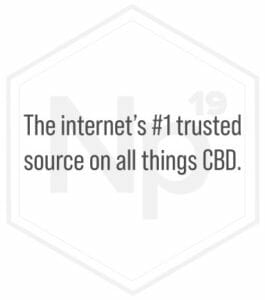If you’re wondering whether CBD laws have changed recently, you’re not alone. The legal landscape surrounding CBD has undergone significant transformations between 2018 and 2024. From the groundbreaking 2018 Farm Bill to new CBD laws affecting everything from production to sale, understanding these changes is crucial for consumers, businesses, and healthcare providers alike. This comprehensive guide explores the evolution of CBD regulations and what it means for you.
The 2018 Farm Bill: A Turning Point for CBD
The Agricultural Improvement Act of 2018, commonly known as the 2018 Farm Bill, marked a watershed moment for CBD legislation in the United States. The Farm Bill is a groundbreaking legislation removed hemp-derived CBD containing less than 0.3% THC from the Controlled Substances Act, establishing a clear framework for legal hemp cultivation. The bill created a distinct legal separation between marijuana and hemp plants, opening new doors for CBD research and development while providing clarity for farmers and manufacturers.
FDA Oversight and Regulatory Framework
The Food and Drug Administration’s stance on CBD has evolved significantly since 2018. The agency has implemented more robust oversight mechanisms, focusing intensively on product safety and quality standards. Manufacturing facilities now face stricter inspection protocols, while product testing requirements have become more comprehensive. The FDA has also taken a firmer stance against unsubstantiated health claims, actively pursuing companies that make unauthorized medical assertions about CBD products.
State-Level Variations
State regulations have created a complex patchwork of CBD laws across the country. While some states have fully embraced CBD in food and beverages, others maintain strict limitations on product forms. These variations extend to testing protocols, labeling requirements, and permitted retail channels, creating challenges for businesses operating across state lines.
Changes in CBD Product Categories
The legal market for CBD products has expanded considerably since 2018. Initially restricted primarily to tinctures and topicals, many jurisdictions now permit a broader range of product types. Food and beverage products containing CBD have gained acceptance in numerous states, though manufacturers must navigate varying requirements for CBD content and labeling. The cosmetics and topicals segment has seen particularly strong growth, accompanied by enhanced safety testing requirements and manufacturing standards.
Interstate Commerce and Transportation
The rules governing CBD transportation and sales across state lines have become clearer since 2018. Carriers and shippers now operate under more defined guidelines, with updated postal service policies providing greater certainty for interstate commerce. These changes have particularly impacted online sales, where payment processing regulations and age verification requirements have evolved to protect consumers while facilitating legitimate commerce.
Testing and Quality Control of CBD
Quality assurance standards have become significantly more rigorous over the past six years. Many jurisdictions now require mandatory third-party testing, with laboratories conducting expanded panels of safety and potency tests. These enhanced requirements extend beyond basic CBD content verification to include comprehensive contamination screening and potency validation. Manufacturing facilities must now adhere to strict Good Manufacturing Practices (GMP), maintaining detailed records and submitting to regular inspections.
Consumer Protection Developments
Consumer protection measures have advanced considerably since 2018. Label requirements now mandate more detailed ingredient listings and clearer CBD content declarations. Marketing restrictions have tightened, particularly regarding health claims and advertising practices. Companies must now provide more transparent information about their products’ contents, origins, and testing results, enabling consumers to make more informed purchasing decisions.
International CBD Regulations
Global CBD regulations have evolved in parallel with domestic changes. International shipping requirements have become more standardized, though complications remain due to varying national policies. Custom documentation requirements have grown more specific, while testing standards for international markets have generally become stricter. These changes have both complicated and clarified the process of participating in the global CBD market.
Future Outlook of CBD Laws
The CBD regulatory landscape continues to develop as lawmakers and regulators respond to new research and market dynamics. Pending federal regulations on CBD laws may further reshape the industry, while state-level initiatives continue to refine local requirements. The trend toward unified standards and enhanced consumer protections shows no signs of slowing, suggesting continued evolution in the years ahead.
Conclusion
The period between 2018 and 2024 has witnessed substantial changes in CBD laws and regulations. While the 2018 Farm Bill established the foundation for legal CBD commerce, subsequent years have brought increased regulation, standardization, and consumer protections. As the regulatory framework continues to mature, staying informed about new developments remains crucial for anyone involved in the CBD industry. The future promises further refinements as lawmakers balance consumer safety with market access, suggesting that the evolution of CBD laws is far from complete.











